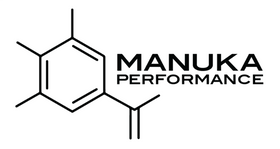The Potential of Mānuka Honey in Nutrition
Ongoing research projects by Mānuka Performance
Introduction: Nutrition is a fundamental aspect of public health and individual well-being. In the quest to enhance overall health, natural remedies have gained considerable attention. Mānuka honey, derived from the nectar of the Mānuka tree (Leptospermum scoparium), has emerged as a promising candidate due to its unique bioactive properties, including potent antibacterial and anti-inflammatory attributes. This abstract explores the multifaceted potential of Mānuka honey in promoting general health, focusing on its applications in wound care, digestive health, immune system support, oral hygiene, and skin health.
Wound Care: Mānuka honey is renowned for its wound-healing properties, attributed to the presence of methylglyoxal and other bioactive compounds. It aids in the formation of granulation tissue, accelerates the healing process, and reduces the risk of infection. Evidence suggests that Mānuka honey can be effectively used in the treatment of various wounds, including burns, surgical incisions, and ulcers, thereby promoting general health by expediting recovery and reducing complications.
Digestive Health: The consumption of Mānuka honey has demonstrated potential benefits for digestive health. Its antibacterial properties can help combat pathogens in the gastrointestinal tract, while its prebiotic effects support the growth of beneficial gut bacteria. Mānuka honey may offer relief for conditions like acid reflux, gastritis, and irritable bowel syndrome. By contributing to a balanced and harmonious digestive system, it plays a pivotal role in general health promotion.
Immune System Support: Mānuka honey's immune-boosting properties are increasingly recognized. The bioactive components not only strengthen the body's defense mechanisms but also help reduce the frequency and severity of infections. With its potential to support the immune system, Mānuka honey is a valuable resource in maintaining general health, especially during times of increased susceptibility to illnesses.
Oral Hygiene: Maintaining good oral hygiene is crucial for overall health. Mānuka honey's antibacterial and anti-inflammatory attributes make it an effective natural remedy for oral care. It can assist in the prevention and treatment of conditions like gingivitis, periodontitis, and mouth ulcers. By promoting oral health, Mānuka honey indirectly contributes to overall health promotion, reducing the risk of systemic health issues linked to oral problems.
Skin Health: Healthy skin is a reflection of overall well-being. Mānuka honey's dermatological benefits include wound healing, acne management, and eczema relief. Its antimicrobial properties combat acne-causing bacteria, while its anti-inflammatory effects soothe irritated skin. By enhancing skin health, Mānuka honey supports general health promotion by bolstering self-confidence and overall quality of life.
Conclusion: Mānuka honey, with its unique bioactive properties, holds great promise in general health promotion. Its applications in wound care, digestive health, immune system support, oral hygiene, and skin health demonstrate a multifaceted potential to enhance overall well-being. While further research is needed to establish specific protocols and dosages, Mānuka honey's natural and holistic approach to health and healing positions it as a valuable resource in the pursuit of general health promotion. As the body of evidence continues to grow, the integration of Mānuka honey into healthcare practices and daily routines may offer new dimensions in enhancing and maintaining good health.

